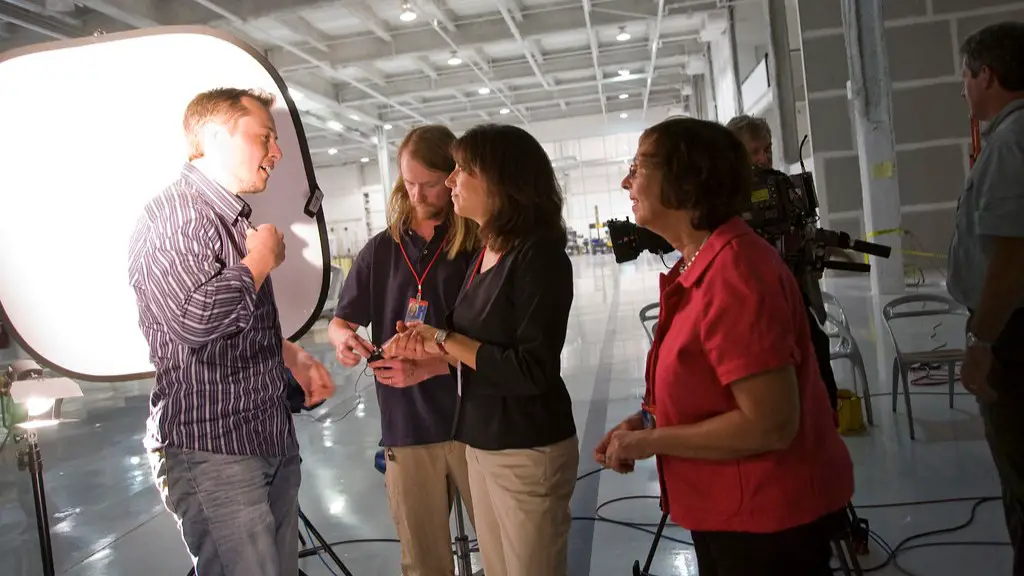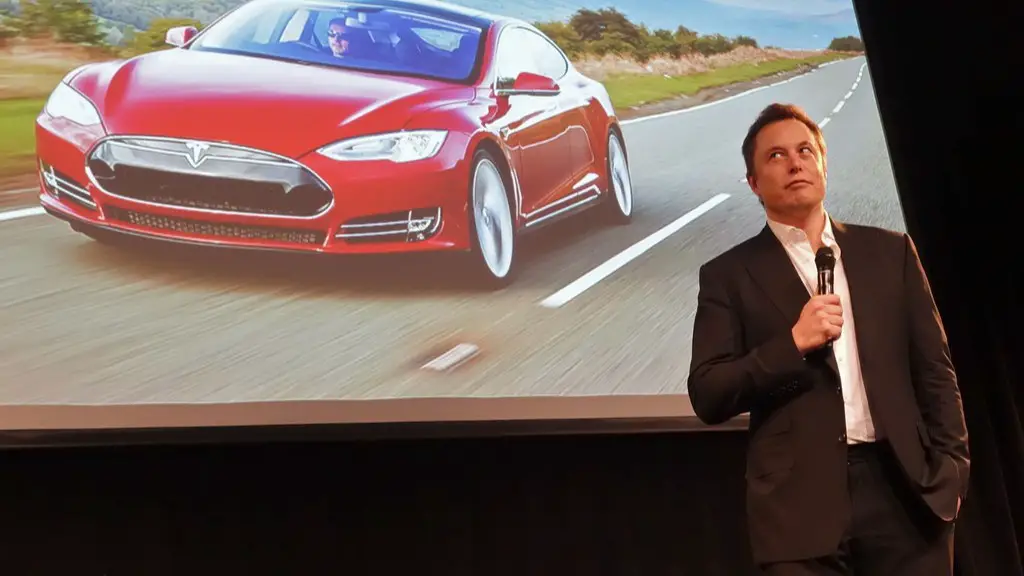Electric Cars – A Brief History
The concept of an electric car dates back to the mid 19th century when electric vehicles were commonly seen around cities. By the early 20th century, they were even more popular than gasoline-powered cars. But eventually, gasoline-powered cars overtook electric vehicles due to their increased range and convenience. Fast forward to today, and electric vehicles are making a resurgence, thanks in large part to the efforts of entrepreneur and visionary, Elon Musk.
Elon Musk – Bringing Electric Cars Back
Elon Musk, who is the driving force behind Tesla Motors, revolutionized the electric car industry by introducing the Tesla Model S in 2012. This groundbreaking car set a new bar for performance and efficiency in the electric car market. It arrived at an opportune time, when gas prices were skyrocketing and public opinion surrounding electric cars began shifting in a positive direction.
The Tesla Model S was also the first mass-produced electric car to offer an extended range of over 200 miles on a single charge. This made it a viable alternative to gasoline-powered cars and created a new market for electric cars. In addition, the Tesla Model S not only addressed the range issue, but it also provided improved performance compared to gasoline-powered cars. The Tesla Model S accelerates 0-60 mph in under four seconds, making it one of the fastest cars available.
Tesla Model S – Bigger, Better Battery Life
The Tesla Model S also set a new standard for battery life. By using large lithium-ion battery packs, Tesla was able to achieve an impressive range of over 300 miles. This was a major breakthrough, given that electric cars were previously limited to a range of 100-150 miles before needing a recharge. The larger battery packs also allowed the vehicle to be charged quickly, in about an hour or less.
In addition to increased range, the Tesla Model S also offers advanced features such as autopilot, which allows the driver to have a semi-autonomous experience. This technology can help to reduce driver fatigue and make driving safer.
Tesla Model X – Bringing Luxury to Electric Cars
Tesla continued its foray into electric cars with the release of the Model X in 2016. This electric SUV takes the concept of the Tesla Model S to the next level. It comes equipped with a powerful dual electric motor system, allowing it to accelerate from 0-60 mph in around 3.2 seconds. This makes it one of the fastest electric cars on the market.
The Tesla Model X also incorporates a number of luxury features, including a panoramic glass roof and its signature falcon-wing doors that open in an impressive arc. It also has the largest battery pack of any electric car with a range of up to 325 miles on a single charge.
Competition Heating Up in the Electric Car Market
With the success of Tesla’s electric cars, other automakers are now starting to make their own entries into the electric car market. Companies such as Volkswagen, Honda, and GM have all released their own electric vehicles in recent years. While they are still playing catch-up to Tesla in terms of range, performance, and features, they are quickly making up ground.
GM’s electric cars, for instance, feature a longer range of over 400 miles on a single charge. This is a significant improvement over Tesla’s Model X, and it shows that other automakers are now capable of producing electric cars that can compete with Tesla’s offerings.
Tesla – Looking to the Future of Electric Cars
Tesla is already looking towards the future with the planned release of their Model Y SUV and the upcoming Roadster 2.0 sports car. The Roadster 2.0 promises to be the world’s fastest production car, with a 0-60 mph time of just 1.9 seconds and a range of almost 400 miles on a single charge.
The Tesla Model Y SUV also promises to be an impressive vehicle, with a range of up to 300 miles on a single charge and a more affordable price tag than the Model X. Both of these cars show that Tesla is committed to pushing the boundaries of electric car technology and performance.
Conclusion of Elon Musk’s Impact on Electric Cars
Elon Musk and Tesla Motors have had a profound effect on the electric car market. By introducing the world’s first mainstream electric car and creating new standards for performance and range, Tesla has ushered in a new era of electric cars that are fashionable, desirable, and practical.
Impact of Economic Factors on Electric Car Technology
Electric vehicles have recently made a resurgence due to economic factors such as rising gas prices. This has resulted in an influx of new customers looking for an alternative to gasoline-powered cars. This demand for electric cars has resulted in increased investment in research and development for electric car technology, which has led to significant progress in the industry.
Electric car technologies such as lithium-ion batteries and the quick-charging systems are now being adopted by other automakers and are becoming a standard feature for electric vehicles. This proves that electric cars are no longer a novelty, but have become a viable and realistic option for car buyers.
Additionally, government incentives and subsidies have been instrumental in driving down the cost of electric cars. This has helped to make electric cars more affordable and appealing to a larger demographic of consumers. By offering these incentives, governments are hoping to encourage the adoption of electric cars and reduce harmful emissions.
Finally, advances in technology such as driverless cars are expected to revolutionize the electric car industry once again. Self-driving cars offer the promise of increased safety and convenience, and they could eventually become a mainstream feature in the near future.
Electric Cars In Environmental Sustainability
Electric cars also offer environmental benefits. The lack of fossil fuel combustion means that electric cars have significantly lower carbon emissions than gasoline-powered cars. This is an important factor for reducing climate change and preserving the environment.
Furthermore, electric cars are highly efficient, with some models offering up to 90% efficiency. This means that less energy is wasted during the conversion from electricity to mechanical energy, resulting in notable savings in energy costs.
The widespread adoption of electric cars could also lead to significant energy savings for society in general. This is because electric cars can provide a storage medium for excess electricity generated from renewable sources such as solar or wind power.
Not only that, electric cars provide better fuel economy and since they require less servicing, they are cheaper to maintain. This will result in more money in the pockets of drivers who opt to go electric.
Impact of Elon Musk on Battery Technology
Elon Musk’s influence in the electric car industry has also extended to battery technology. He was one of the first to recognize the potential of lithium-ion batteries and the role they could play in providing a better battery life and range.
Musk’s company, Tesla, has become a leader in battery technology and has produced some of the most advanced and powerful lithium-ion batteries available on the market. These batteries allow for longer range and faster charging times, giving drivers the ability to go farther and faster than ever before.
Tesla has also developed technologies such as battery management systems, which allow drivers to monitor the health and performance of their car’s battery. This helps to ensure maximum efficiency and reduce the risk of costly battery replacement.
The Future of Electric Cars
Electric cars have come a long way since the early days of the 19th century and the progress made by Elon Musk and Tesla Motors have been truly revolutionary.
As economic and technology factors continue to improve, electric cars are expected to become increasingly more common on the roads. The current trend of rising gas prices and the development of driverless technology could lead to the widespread adoption of electric cars in the near future.
It is clear that electric cars are here to stay, and the technology is only going to become even more advanced and efficient. It is up to us now to ensure that electric cars are part of the future of driving.

